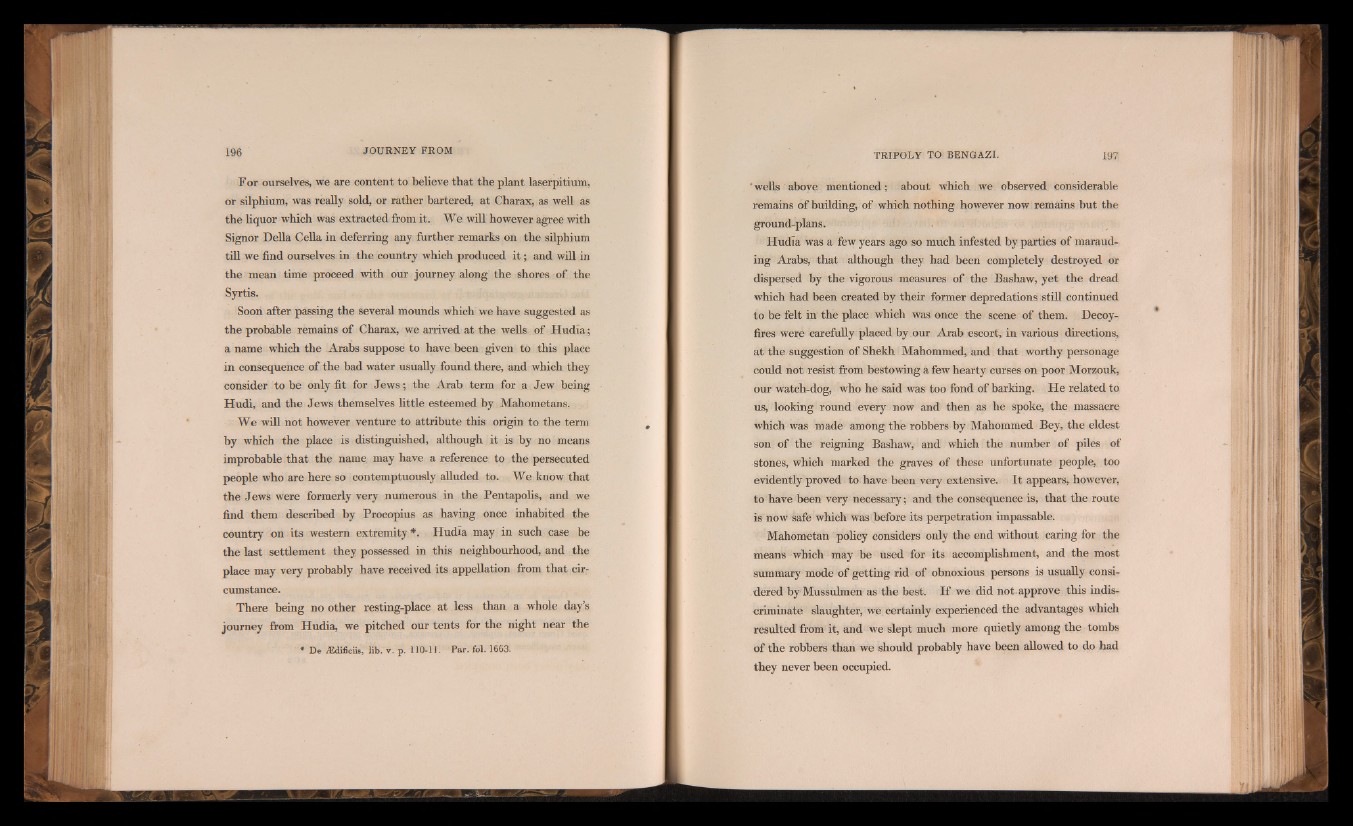
For ourselves, we are content to believe that the plant laserpitium,
or silphium, was really sold, or rather bartered, at Gharax, as wéll as
the liquor which was extracted from it. We will however agree with
Signor Della Celia in deferring any further remarks on the silphium
till we find ourselves in the country which produced i t ; and will in
the mean time proceed with our journey along the shores of the
Syrtis.
Soon after passing the several mounds which we have suggested as
the probable remains of Charax, we arrived at the wells of Hudia;
a name which the Arabs suppose to have been given to this place
in consequence of the bad water usually found there, and which they
consider to be only fit for Jews; the Arab term for a Jew being
Hudi, and the Jews themselves little esteemed by Mahometans,
We will not however venture to attribute this origin to the term
by which the place is distinguished, although it is by no means
improbable that the name, may have a reference to the persecuted
people who are here so contemptuously alluded to. We know that
the Jews were formerly very numerous in the Pentapolis, and we
find them described by Procopius as having once inhabited the
country on its western extremity *. Hudia may in such case be
the last settlement they possessed in this neighbourhood, and the
place may very probably have received its appellation from that circumstance.
There being no other resting-place at less than a whole day’s
journey from Hudia, we pitched our tents for the night near the
* De jEdificiis, lib. v. p. 110-11. Par. fol. 1663.
'wells above mentioned; about which we observed considerable
remains of building, of which nothing however now remains but the
ground-plans.
Hudia was a few years ago so much infested by parties of marauding
Arabs, that although they had been completely destroyed or
dispersed by the vigorous measures of the Bashaw, yet the dread
which had been created by their former depredations still continued
to be felt in the place which was once the scene of them. Decoy-
fires were carefully placed by our Arab escort, in various directions,
at the suggestion of Shekh Mahommed, and that worthy personage
could not resist from bestowing a few hearty curses on poor Morzouk,
our watch-dog, who he said was too fond of barking. He related to
us, looking round every now and then as he spoke, the massacre
which was made among the robbers by Mahommed Bey, the eldest
son of the reigning Bashaw, and which the number of piles of
stones, which marked the graves of these unfortunate people, too
evidently proved to have been very extensive. I t appears, however,
to have been very necessary; and the consequence is, that the route
is now safe which was before its perpetration impassable.
Mahometan policy considers only the end without caring for the
means which may be used for its accomplishment, and the most
summary mode of getting rid of obnoxious persons is usually considered
by-Mussulmen as the best. I f we did not.approve this indiscriminate
slaughter, we certainly experienced the advantages which
resulted from it, and we slept much more quietly among the tombs
of the robbers than we should probably have been allowed to do had
they never been occupied.